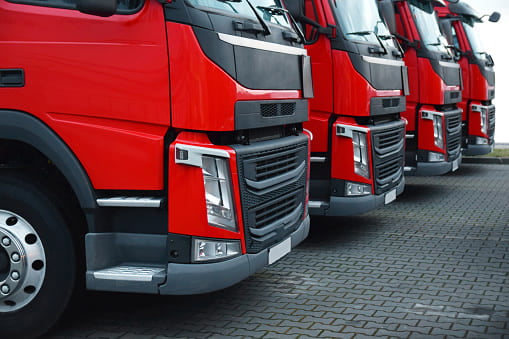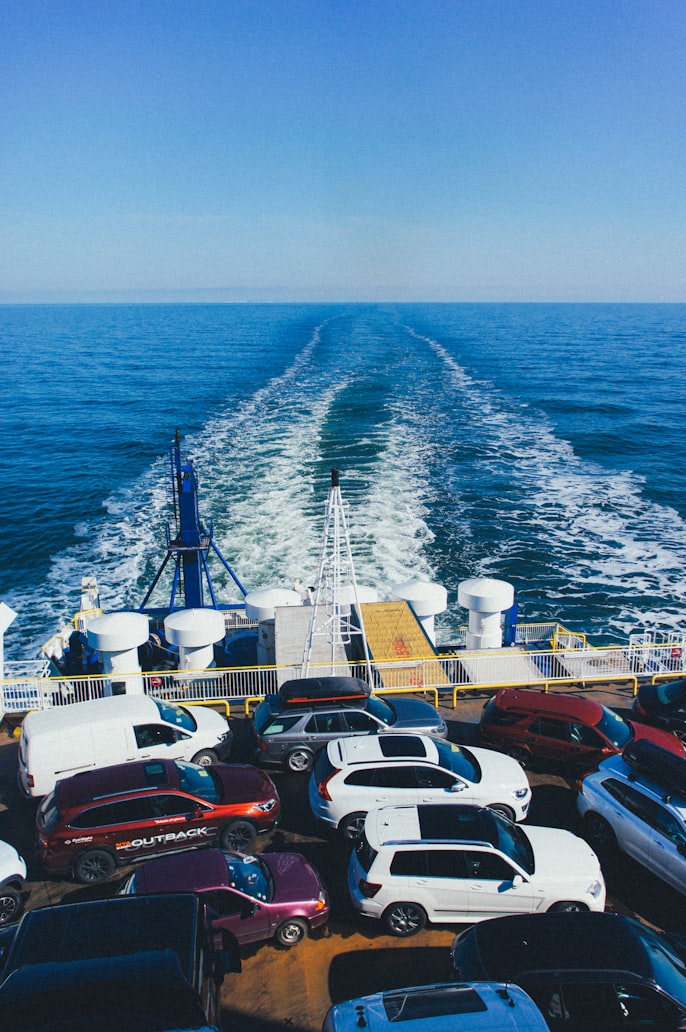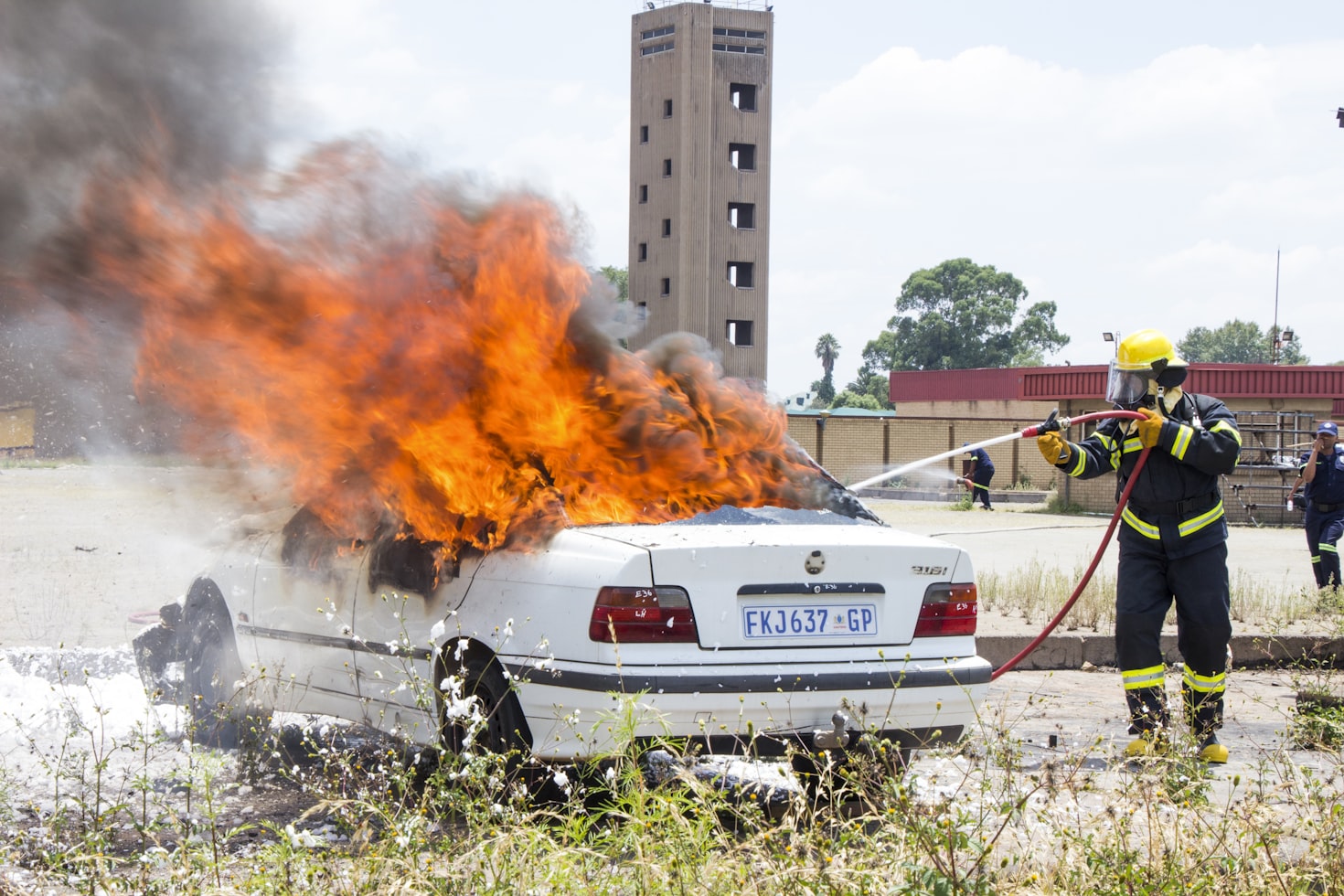Commercial Vehicle Insurance
What is Commercial Vehicle Insurance?
Most business-use cars, such as sedans, utes, vans, lorries, forklifts, and trailers, are covered by commercial vehicle insurance, sometimes referred to as business vehicle insurance or business car insurance. Truck Insurance HQ Commercial Motor Vehicle Insurance is designed to cover your commercial vehicles and get you back on the road. It may be purchased as a stand-alone Commercial Vehicle product that covers up to 14 cars under one policy, or as part of a package inside your company insurance.
Why do you need Commercial Vehicle Insurance?
If you are the vehicle business owners or even you have to commute everyday, you should buy Commercial Vehicle Insurance to cover the damage comes from accidents that may happen on the road, or your vehicles may be stolen
Buying commercial vehicle insurance at Truck Insurance HQ may be beneficial for the one who are frequently do those activities:
- Clients visit (for sale people)
- Delivery products or food
- Trucks are used for house moving
- Transportation of equipment
What does Comprehensive Commercial Vehicle Insurance cover?
- Loss and Damage
Covers the cost of replacing or repairing your car in the case of certain calamities, such as fire, hail, flood, storm, or earthquake damage; theft; or intentional damage. Based on the insurance you’ve chosen for your vehicle/s, we’ll pay the market value or agreed value sum insured.
- Cover third-party Property
Covers the amount you’re legally obligated to pay (up to $30 million) as compensation for property loss or damage caused by a motor vehicle accident involving your car. If a loss occurs when transporting risky products, coverage is restricted to $5 million.
- Personal property
Coverage for personal goods taken from your secured car or stolen at the same time as your vehicle if it is damaged in an accident. Any one accident or theft is covered up to $1,000. Personal items belonging to the vehicle’s custodian are covered.
- New Vehicle Replacement
If your vehicle is declared a total loss within two years of its original registration date, we may replace it with a new one of the same make, model, series, and accessories (subject to local availability, if available in Australia, and with the approval of any financier where applicable).
The sedan, station wagon, four-wheel drive, panel van, utility, or goods-carrying vehicles covered by the new-for-old replacement vehicle cover have a specific gross vehicle mass.
What does Fire and Theft cover?
- Loss and Damage to your vehicle
Covers the cost of replacing or repairing your car in the case of one of the following events: fire, lightning, explosion, theft, unlawful conversion, or damage caused by an uninsured third party. Up to $5,000, whichever is less.
- Damage to Other Property Covers the amount you’re legally obligated to pay (up to $30 million) as compensation for property loss or damage caused by a motor vehicle accident involving your car. If a loss occurs when transporting risky products, coverage is restricted to $5 million.
What third party property damage cover?
- Covers the amount you’re legally obligated to pay (up to $30 million) as compensation for property loss or damage caused by a motor vehicle accident involving your car. If a loss occurs when transporting risky products, coverage is restricted to $5 million.
- Provides $5,000 worth of coverage, less any applicable excesses, for damage to your car resulting from a collision with an uninsured car whose driver is at fault.
- If you can provide us with the name and contact information of the at-fault party, the license plate number of the other car, or any other facts that would logically enable us to identify the individual, coverage will be provided.
What’s NOT covered in Commercial Vehicle Insurance?
- Damages that happened before
- The price of fixing harm that has already been done to your car.
- Drivers who are impaired
- If the motorist is impaired by or under the influence of any drug or alcohol, there is a risk of damage, loss, or injury.
- Legal liability claims that have already been addressed
- Legal responsibility claims for death or physical harm that aren’t covered by any statutory or mandatory insurance, compensation plan, or fund.
- Existing legal liability claims
- Legal claims made against you for death or physical harm that is in any manner covered by a statutory or required insurance, compensation plan, or fund.
Benefit of Choosing Commercial Vehicle Insurance at Truck Insurance HQ
- A variety of choices of Insurance Coverage
- Fast and easy claim
- (Pay Monthly)
- Fast and Easy Claim
- Choices of Repairers
Compare Commercial Vehicle Insurance
Still unsure which type of Commercial Vehicle Insurance is right for your business? Compare our three levels of cover.
Comprehensive cover
Fire and Theft cover
Third Party Property Damage cover
Loss or damage to your vehicle
Accidental damage, such as that brought on by fire, hail, flooding, storms, or earthquakes; theft; or deliberate harm. Market value, agreed value, or sum insured, whichever is lower.
Events: fire, lightning, explosion, theft or illegal conversion or damage as a result of an accident caused by an uninsured third party Up to $5,000
See Damage by uninsured motorists
Damage to third-party property
Up to $30 million
Up to $30 million
Up to $30 million
New vehicle replacement
Up to $30 million
Damage by uninsured motorists
Up to the insured sum
Up to $5,000
Up to $5,000
Hire costs following fire and theft
Emergency vehicle hire
Up to $100 per day for up to two consecutive days
Personal property
$1,000 for any one accident or theft event
Unspecified accessories
$5,000 for any one event
Tools of trade
$1,000 for each event
Sign writing
$5,000 for each event
Towing
$5,000
Optional benefit: hire costs following an accident
Up to 42 days or $3,000 per vehicle
How much does Commercial Vehicle Insurance at Truck Insurance HQ cost?
There are many variable factors that go into determining the price for Commercial Vehicle Insurance,
including:
- Where the vehicle’s located
- Driving history/experience
- Claims and accident history
- Type of vehicle and its conditions, accessories and modifications
- Type and amount of cover required and excesses
Do I need to buy the Business Insurance Pack to get Commercial Vehicle Insurance?
There are two ways to get Commercial Vehicle Insurance:
- Through our Business Insurance Pack policy
designed to be your one-stop-shop for common business insurance risks, or - A standalone Commercial Motor Insurance policy
The Business Insurance Pack offers a range of small business insurances, allowing you to choose the
covers that suit your business needs. In order to buy Commercial Vehicle Cover as part of our
Business Insurance Pack, you must buy Public and Products Liability Insuranceor Commercial Property Insurance and add on Commercial Vehicle Cover.
Get a quote for up to two commercial vehicles online now. For standalone Commercial Motor Insurance for up to 20
vehicles, call our team of specialists on 1300 815 344
What types of vehicles does Commercial Vehicle Insurance cover?
You can buy Commercial Vehicle Insurance for a wide range of vehicles including: sedans, wagons,
utes, 4WDs and goods-carrying vehicles up to two, five and 10 tonnes, trailers, mobile and
earth-moving equipment. Acceptance criteria apply.
Are there any vehicles that Truck Insurance HQ Commercial Vehicle Insurance doesn’t cover?
Vehicles that we don’t cover under the policy include:
- Taxis/ former taxis
- Driving instructor vehicles
- Ambulances/ fire brigade vehicles
- Vehicles carting asbestos
- Motorcycles
- Grey imports (vehicles that have been imported into Australia by someone other than the vehicle’s manufacturer or their approved distributor)
- Mining machinery/vehicles working underground
- Hire vehicles
- Security company vehicles
- Couriers/taxi trucks
- Mobile cranes/ hook risks
- Long haulage vehicles
- Heavy vehicles with drivers aged under 25 years
- Vehicles that are over 30 years old (unless under Third Party Property Damage cover)
- Vehicles used for carrying passengers for hire or reward e.g. buses, ride share.
Which vehicle is considered commercial?
A commercial vehicle is any vehicle that you employ for business purposes, including automobiles, trucks, and vans.
How much is commercial vehicle insurance at Truck Insurance HQ?
There are several variables that influence the cost of Commercial Vehicle Insurance, including:
- There are several variables that influence the cost of Commercial Vehicle Insurance, including:
- Where is the automobile parked?
- Experience/history of driving
- Accidents and claims history
- Vehicle type and condition, as well as accessories and alterations
- Excess coverage, as well as the type and quantity of coverage necessary



